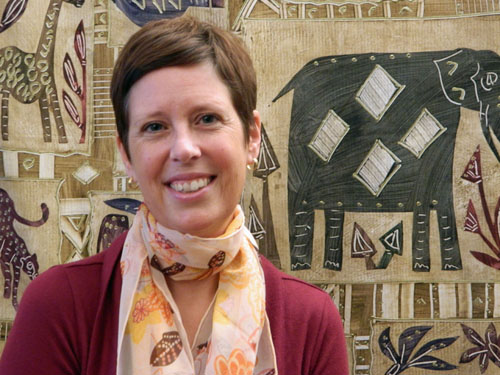
To people in Botswana, the connection between women and chickens seems obvious. Women take care of chickens, which are a source of food but not highly valued; men take care of the more prestigious cattle. But in urban settings, where cattle can’t be raised, chickens are proving to be an important part of urban agriculture, and that may be changing the status of both the chickens and the women who raise them.
“In Botswana, men and women participate in urban agriculture in equal numbers,” says geography professor Alice Hovorka. “But the women usually have smaller farms, the less-desirable land and fewer resources, so they are generally less productive.” Since women from rural areas already had experience in raising chickens, many have brought poultry to their urban farms – with good results. Even though the women are marginalized, they are making more money than they had in the past, and this increases their power and ability to access more resources. As a result, men are developing more respect for women as entrepreneurs and for chickens as a food source.
Hovorka will be talking about “The Lives of Women and Chickens in Botswana: Intersections, Hierarchies, and Everyday Lives” in the MacKinnon Building, Room 229 at noon on Nov. 29 (bring your lunch). Her talk is part of the Arts, Science and Technology Research Alliance (ASTRA) series.
Watching the TV show Wild Kingdom first got Hovorka hooked on Africa, and her brother’s work with the World Wildlife Fund in Zimbabwe further encouraged her to consider conducting research on that continent. Zimbabwe, though, was not an easy location for foreign researchers, and Hovorka turned instead to the country of Botswana.
“When I visited, I was struck by the pristine landscapes and the accomplishments of the people. Botswana keeps me coming back,” she says. “I’ve now been researching here for more than 12 years. Botswana is considered the gem of Africa because it is more stable than most of the other countries and that stability has led to many successes. For example, they have free health care and free education.” That doesn’t mean the country is without problems: the HIV epidemic has hit Botswana hard, and the gap between rich and poor is growing.
She sees the “women and chickens” story as illuminating some of the problems caused when one group dominates another group – whether it is across gender, class or species lines. “Men’s role as breadwinner has traditionally been valued over women’s role in the domestic sphere,” she explains. “In a similar way, cattle were valued over chickens. So looking after chickens becomes a woman’s job. It’s very hard to get out of these cycles of oppression.”
Hovorka points out just how hard it is: even though the women achieve some status and respect through their success in raising chickens in an urban environment, “They are still largely controlled by men,” she says. “And the increased status of the chickens is only symbolic – they are still killed and eaten.”
Men who have seen the success of the women’s chicken farms have begun to redefine the work of looking after chickens. At one time, they would often say that chickens are like babies who need the nurturing care of women. Now, says Hovorka, they describe chickens as needing a lot of attention, so that’s why it is men’s work to look after them.
Hovorka’s next area of research will look at the tensions between domesticated animals and their owners and wild animals and their caregivers. For a long time, the focus in Botswana was on increasing the numbers of cattle and other livestock. However, increasingly, tourists have been interested in seeing the wild lions, elephants and other animals that live there. National parks provide protected areas for the wildlife, but farmers accuse the lions of jumping over the park fences, grabbing a goat or two for dinner, and returning to their sanctuaries.
“Botswana has been the world’s third largest exporter of beef,” Hovorka says. “But now the wild animals are more valued. This new dynamic is driving the social and political changes in Botswana.
“We have an intricate and intimate relationship with animals and nature,” says Hovorka. “We choose to surround ourselves with certain animals for particular reasons, and we often depend on them for our livelihoods. I want to remind people how central and important animals are to our lives.”